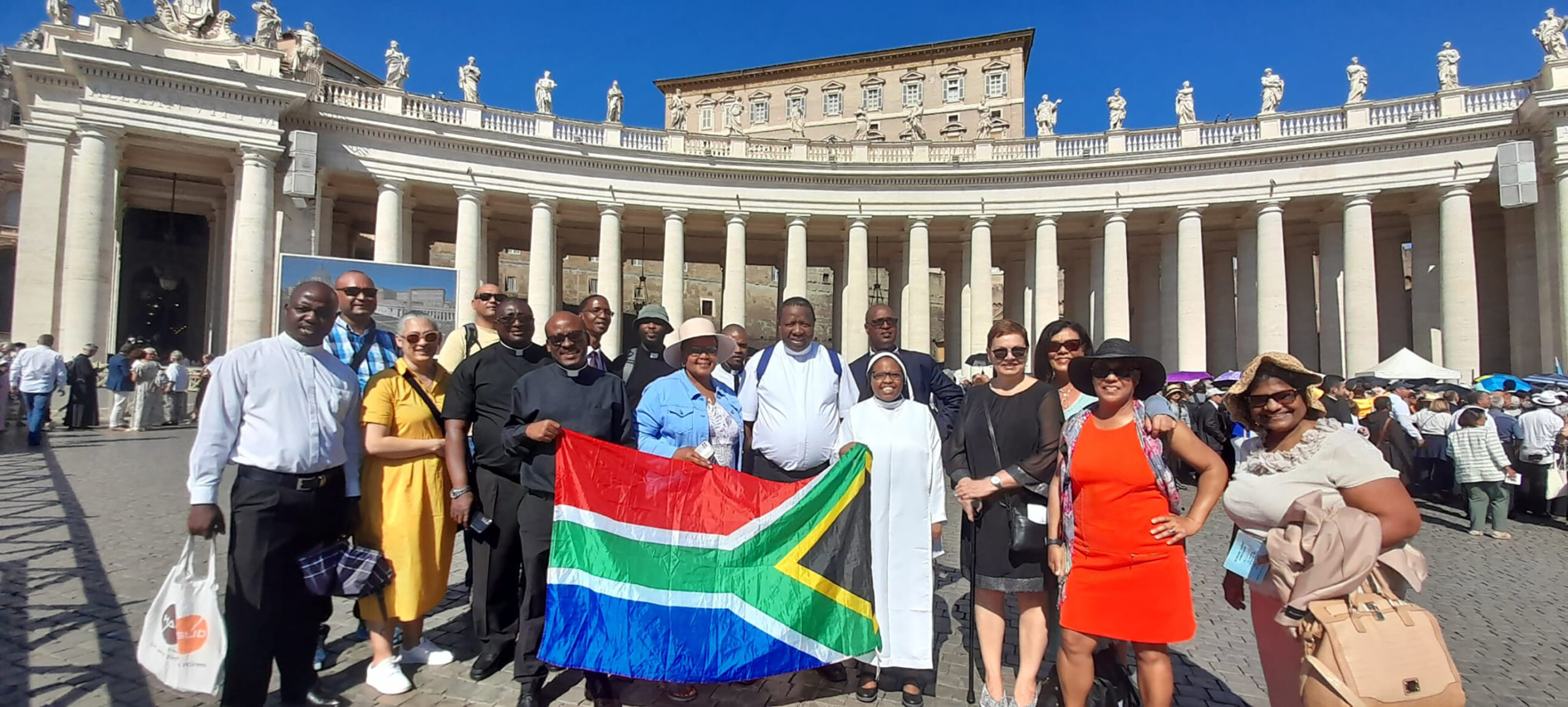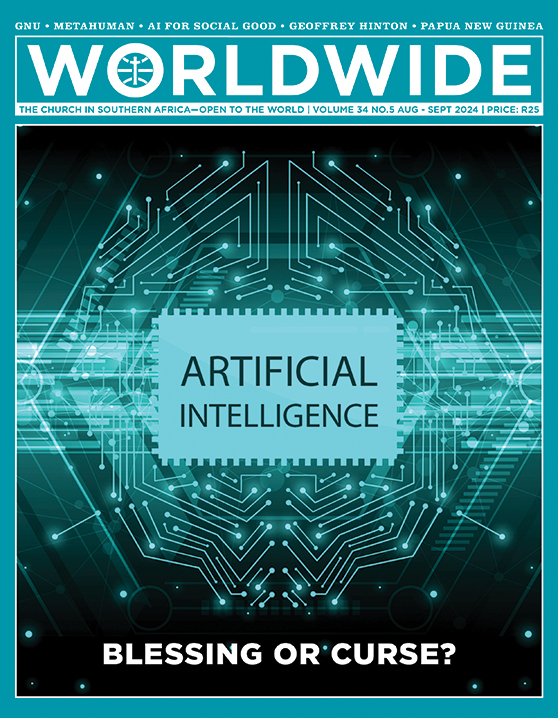
ARTIFICIAL INTELLIGENCE: BLESSING OR CURSE?
The image, according to Chat GPT, features the phrase “ARTIFICIAL INTELLIGENCE” at its centre, overlaid on a stylized depiction of a microchip and circuitry. This design symbolizes the integration of advanced AI technologies within modern electronic systems, emphasizing the critical role of AI in driving technological innovation and enhancing computational capabilities across various industries.
REFLECTIONS • ETHICS
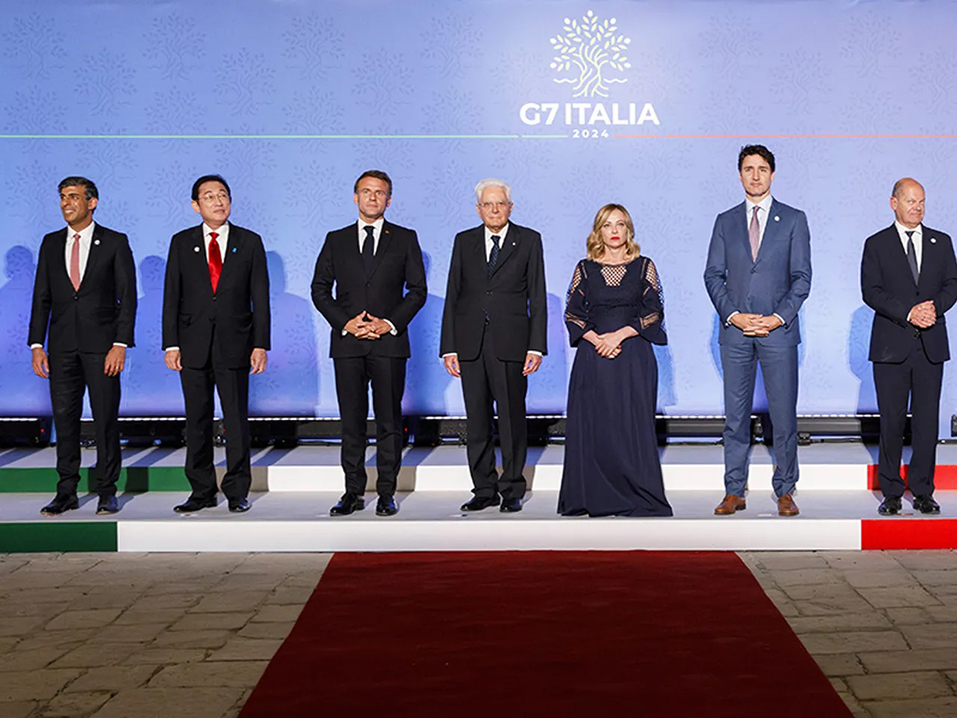
NOT ARTIFICIAL, NOT INTELLIGENT!
On the 14th of June, Pope Francis addressed G7 world leaders at their meeting in Italy. He spoke about Artificial Intelligence (AI), portraying it as neither ‘artificial’ (but the result of careful planning by technicians), nor ‘intelligent’ (since it relies on algorithms designed by experts). Nevertheless, AI poses a great dilemma for us. Will it be used for constructive purposes, or take a bad turn, removing the power of decision from humans who designed it?
BY JOSEPH CARAMAZZA MCCJ
ON THE 4th of October 1965, Pope Paul VI addressed the General Assembly of the United Nations in New York. It was the first time that a Pope met representatives of so many countries outside the walls of the Vatican. That was a positive move. Popes need to address world leaders, and it is encouraging that they do it not only during meetings in Rome—where they are the hosts and leaders—but within structures of world governance. On those occasions, the Pope shows his interest in being among them, offering his views with respect, but also with the authority stemming from his role in the world.
Pope Francis Meets G7
The latest of such meetings happened in Borgo Egnazia, a small town near the city of Fasano (Apulia) in southern Italy, where the G7’s leaders gathered from the 13th until the 15th of June 2024. The Group of Seven (G7) is an intergovernmental political and economic forum bringing together the leaders of Canada, France, Germany, Italy, Japan, the United Kingdom, and the United States, some of the world’s most advanced economies and technological nations. They are often joined by representatives of the European Union. The decisions taken at this forum have a great impact on the world scene.
“Thank you very much for accepting our invitation and becoming the first pontiff at the G7. Thank you for your words, which are clearly an inspiration to each one of us,” Italian Prime Minister Giorgia Meloni said after Pope Francis’ address to the G7 in a session devoted to AI, energy, Africa, and the Mediterranean.
Science and Technology to Serve Humanity
Francis opened his address by emphasizing the value of scientific development. “Sacred Scripture attests that God bestowed his Spirit upon human beings so that they might have ‘skill, understanding and knowledge in every craft’ (Ex 35:31). Science and technology are therefore brilliant products of the creative potential of human beings. Indeed, artificial intelligence arises precisely from the use of this God-given creative potential.”
He also indicated that, unlike other technologies, AI holds some serious dangers. “The question of artificial intelligence, however, is often perceived as ambiguous: on the one hand, it generates excitement for the possibilities it offers, while on the other it gives rise to fear for the consequences it foreshadows… We could say that all of us… experience two emotions: we are enthusiastic when we imagine the advances that can result from artificial intelligence but, at the same time, we are fearful when we acknowledge the dangers inherent in its use.”
“No machine should ever choose to take the life of a human being.” (Pope Francis)
AI is a tool—and as such, neither good nor evil. Its beneficence depends on how it will be used. However, “while the use of a simple tool is under the control of the person who uses it, artificial intelligence, on the other hand, can autonomously adapt to the task assigned to it and make choices independent of the person in order to achieve its intended goal.” In other words, this is a technology that could easily escape the control of its human creator.
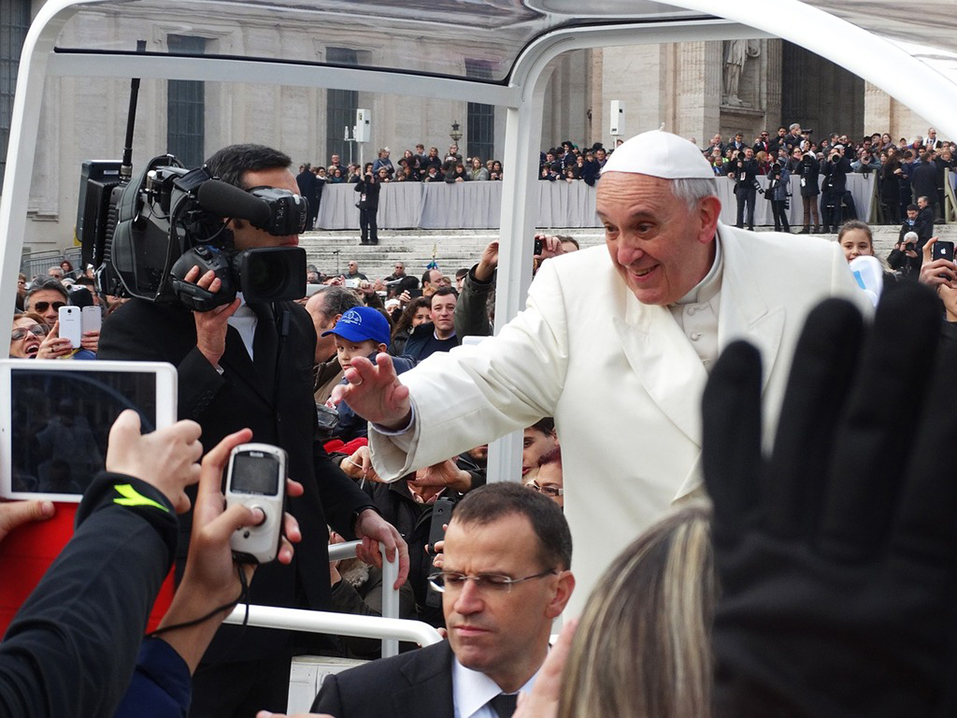
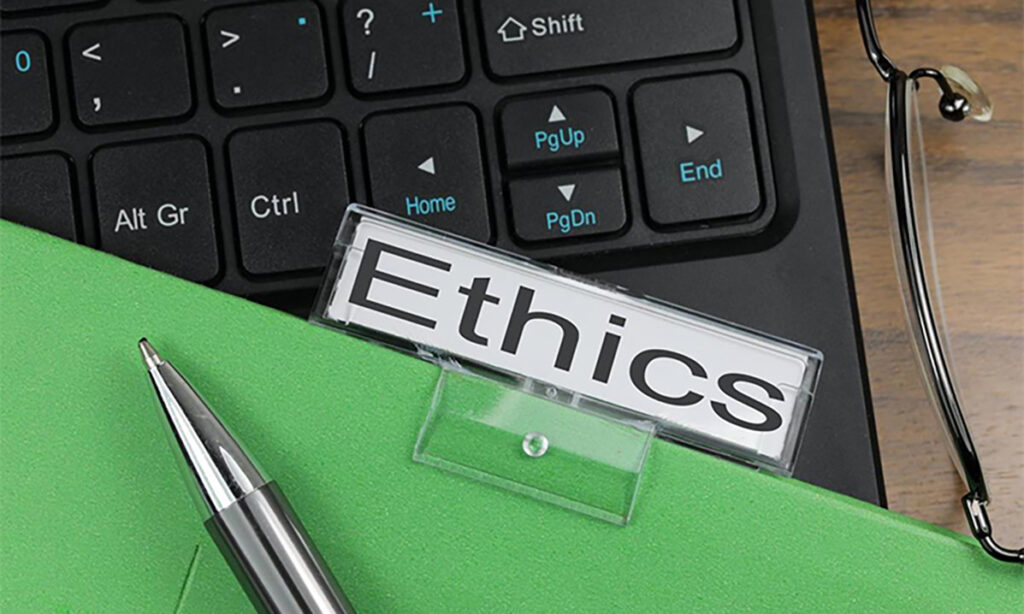
A tool should always remain under the control of a person who has the moral obligation to answer to his/her conscience about its use. Human beings must make choices, at times even tough ones. Machines will follow only the algorithms recorded in their digital memory. Here lies the difference between the two scenarios: “We should be very clear that decision-making, even when we are confronted with its sometimes dramatic and urgent aspects, must always be left to the human person. We would condemn humanity to a future without hope if we take away people’s ability to make decisions about themselves and their lives, by dooming them to depend on the choices of machines. We need to ensure and safeguard a space for proper human control over the choices made by artificial intelligence programs: human dignity itself depends on it.”
A matter of particular urgency is the emergence of AI-driven weapons. New weapons are appearing on battlefields—capable of identifying targets and destroying them without the intervention of human beings. Pope Francis stressed the need to reconsider the development and use of devices like the so-called “lethal autonomous weapons” and ultimately ban their use. An effective and concrete commitment to introduce ever greater and proper human control should be our starting point. “No machine should ever choose to take the life of a human being,” stated the Pope.
The Person at the Centre
Today, the fundamental risk which AI presents to us is its lack of soul. This may initially seem harmless. We are all captivated by a machine capable of painting a beautiful image simply by following our instructions. We might find it hilarious to reproduce someone’s voice for a practical joke. Yet, these seemingly innocuous capabilities can be used to fabricate false evidence, instill fear in people, play games with their minds, and direct them to make questionable decisions. Undemocratic governments could use AI to strengthen their grip on populations, annihilating their ability to make choices. In other words, there is a significant danger that the freedom of every human being might be compromised due to the misuse of AI.
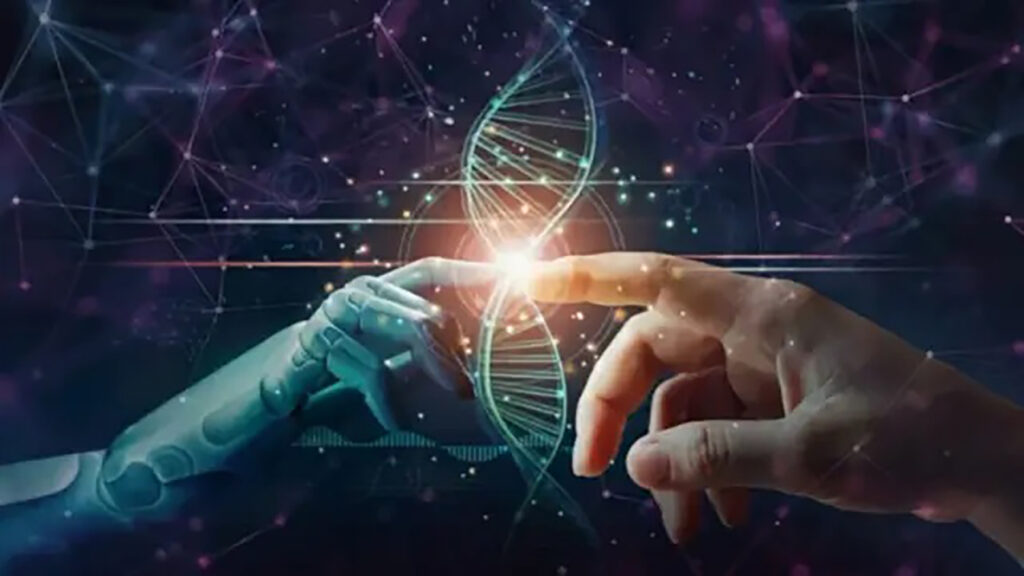
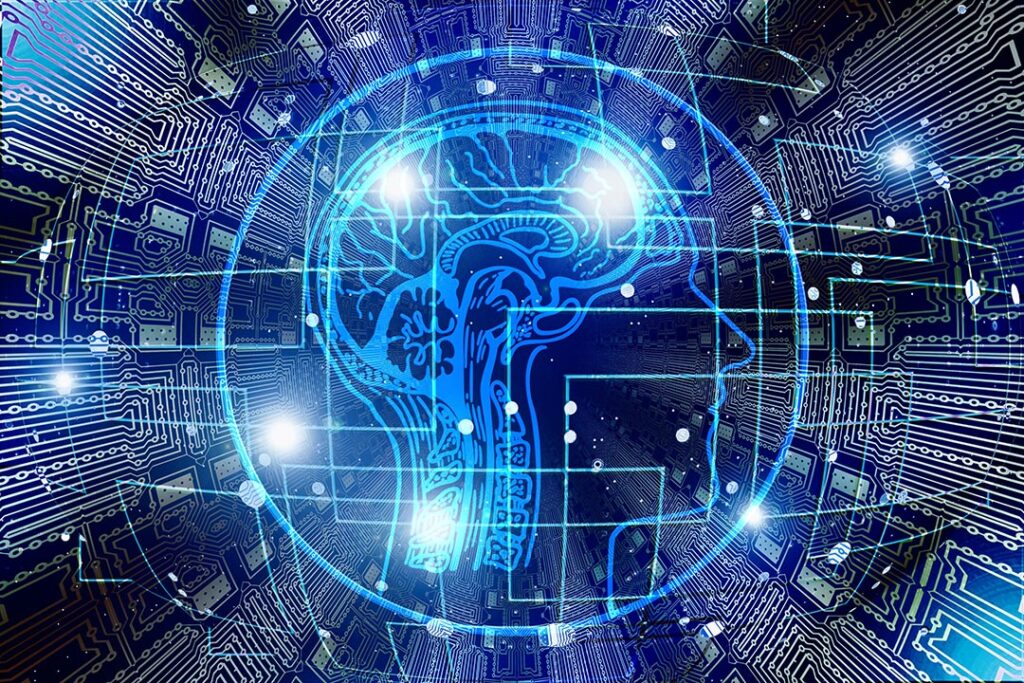
“We seem to be losing the value and profound meaning of one of the fundamental concepts of the West: that of the human person. Thus, at a time when artificial intelligence programs are examining human beings and their actions, it is precisely the ethos concerning the understanding of the value and dignity of the human person that is most at risk in the implementation and development of these systems.”
Without sounding frantic, Pope Francis is raising the alarm. While AI has the ability to be of significant value in human endeavors, there is also the possibility that further development of AI, without an ethical reference, may result in a monster uncontrollable by us. Like all other tools available to us, AI needs to resonate with clear ethical values, the most important of which is placing the human person at the center of every decision. The well-being of the human being is one of the tenets of the Social Doctrine of the Church, and one which is extremely important for our own future.
“True statecraft is manifest when, in difficult times, we uphold high principles and think of the longterm common good.” (Pope Francis)
We can create machines that, using AI, can make our lives better. However, the ultimate decisions must remain within the human domain. This is why Pope Francis welcomed the Rome Call initiative, a document signed in Rome in 2020 by the Pontifical Academy for Life, private digital companies like Microsoft and IBM, the UN agency FAO, and the Italian government, which committed themselves to developing and supporting an ethical approach to AI. It calls for a sense of responsibility among organizations, governments, and private institutions. The Call aims to create a future where digital innovation and technological progress serve people and enhance their creativity without replacing them in their decision-making processes.
(Editor’s note: Cisco, a leading US technological company, joined the Rome Call on 24 April 2024).
Good Politics
Unexpectedly, Pope Francis stressed the importance of sound politics in order to look to our future with hope and confidence. While it is true that there is dissatisfaction about the performance of many politicians, especially because of corruption and inefficiency, it is also true that we need politics. “Can our world function without politics?—asked the Pope—Can there be an effective process of growth towards universal fraternity and social peace without a sound political life? Our answer to these questions is: No! Politics is necessary! I want to reiterate in this moment that ‘in the face of many petty forms of politics focused on immediate interests, true statecraft is manifest when, in difficult times, we uphold high principles and think of the long-term common good.’ My reflection on the effects of artificial intelligence on humanity leads us to consider the importance of healthy politics so that we can look to our future with hope and confidence.”

